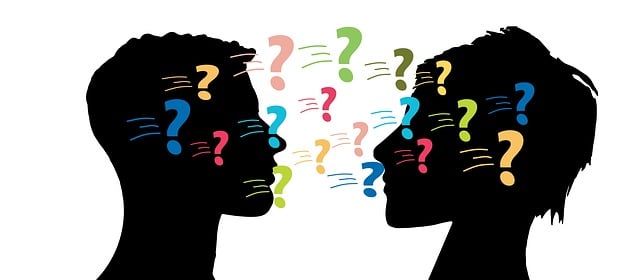This verbal communication quiz queries you to discern how effectively you can present your thoughts. Mastering the art of oral communication will help you build relationships, persuade your listeners, convey your ideas efficiently, and enhance productivity. It is beneficial to assess yourself and learn where you need to improve. Take the verbal communication quiz and keep practicing to become better at communicating!
Verbal or oral communication means using words to share information with others and presenting them vocally. Some people make room for written communication in that definition, but many use the term only to describe speech.
Verbal communication includes talking, laughing, writing, listening, and other activities. Additionally, we cannot separate successful verbal interactions from nonverbal communication. It consists of body language, tone, gestures, and facial reactions.

We use verbal communication from the moment we enter the world. A new baby crying is its first attempt at communicating. As we grow, we find more sophisticated ways to convey our thoughts and express our needs.
Communication works both ways. It requires one individual to transmit a message and another to receive it. That is why the art of communication includes both engaged listening and effective speaking.
We can categorize oral communication into five groups depending on who our audience is. These categories include our private thoughts, one-on-one interactions, small group conversations, public speaking to a larger number of people, and communication through a medium.
Intrapersonal communication is the internal dialogue you have with yourself. It is talking, thinking, or even writing messages to yourself. This type of communication is valuable because it helps you make sense of your thoughts, form your ideas, and decide what to say to others.
This kind of communication includes two individuals. It helps you explain your thoughts and understand how you appear. You can study your interlocutor’s body language, facial expressions, and other cues they give. Active listening is vital for effective communication.

It happens between more than two people but fewer than a large group, like a board meeting or team discussion. It could be a conversation with several friends or a chat with coworkers. The group size is small enough that everyone can communicate with one another. Everyone – more or less – should have a chance to express their thoughts in that setting.
Public speaking means a person addressing a large group of people. An example of public communication can be a speech, a lecture, a presentation, or an election campaign.
It means passing down information to a large group through a medium that can reach a significant audience. It includes television, radio, newspapers, internet broadcast, social media, etc. The internet, in particular, is a tool that can help people share information globally in a matter of seconds.
Knowing how to express your ideas so others can understand you is a critical skill. It enables you to persuade your audience of your point of view. In turn, they can provide feedback and share their thoughts. The skill of persuasion can come in handy during casual conversations with friends and workplace brainstorming sessions.
Verbal communication makes it possible to cultivate relationships. You can seek like-minded people with similar interests, ideas, and views. It motivates you to come together and work as a team. When you know how to communicate, you can foster close relationships based on respect, politeness, and mutual interest.
Effective speaking allows clarity of thoughts and reduces misunderstandings. You can repeat your message to make it unambiguous and provide constructive feedback without offending anyone.
Strong verbal communication skills can give you confidence, satisfaction from building positive relationships, and motivation to communicate with intent. They will assist you in achieving professional and personal success.
How do you test verbal communication skills? In our quiz, we gathered several plausible scenarios. They will include workplace situations and interactions with friends and with family. Your task will be to react to them appropriately. Finally, you will be evaluated on your verbal communication skills.
Time for your oral communication quiz. Navigate through specific scenarios to evaluate your communication abilities. Take the test and receive an assessment! Good luck!